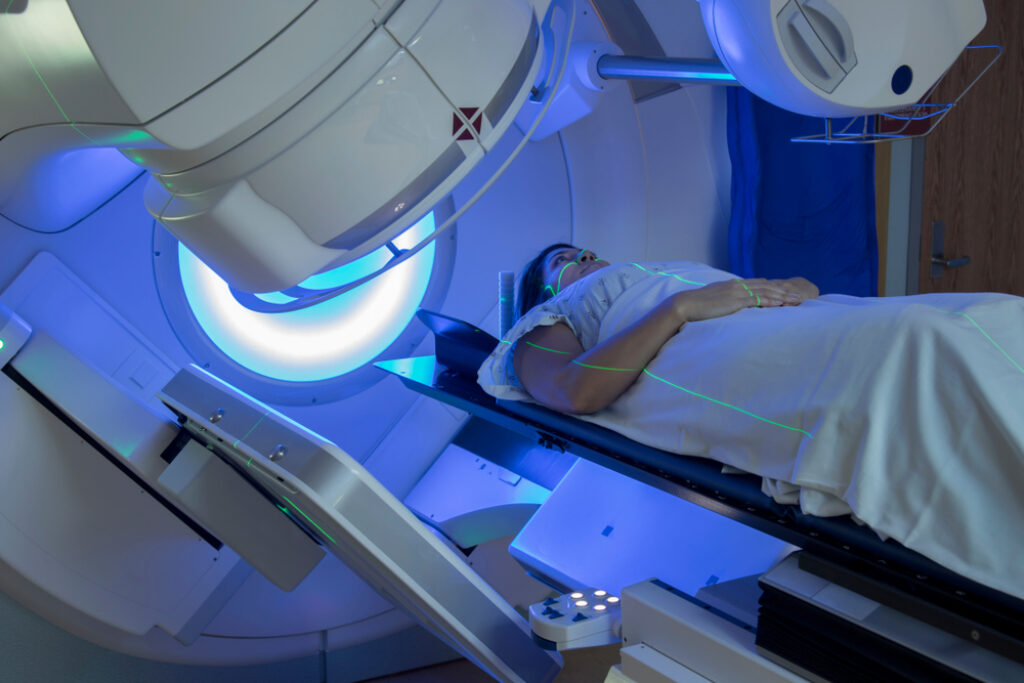
The Latest Advances in Lung Cancer Treatment and Research
Of all the types of life – threatening cancers that have arisen in modern times, lung cancer is particularly common. This sad fact is primarily due to the ravages of cigarette smoke, and the excessive levels of pollution in built – up areas.
Related Topics (Sponsored Ads):
Lung cancer is a devastating disease that affects millions of people worldwide. Many factors can be blamed for its development, such as smoking, inhaling toxic fumes / chemicals, and breathing polluted air. It causes a range of unpleasant symptoms, including persistent coughing, coughing up blood, and difficulty breathing. Over the years however, significant advancements have been made in the field of lung cancer treatment and research. These advances have revolutionized the way we diagnose, treat, and prevent lung cancer, offering new rays of hope to patients and their families.
The article below will explore the latest advances in lung cancer treatment and research, including their effectiveness and suitability. It will also discuss the diagnosis process and provide helpful prevention tips.

Immunotherapy
Immunotherapy has emerged as a breakthrough treatment option for lung cancer patients. It works by harnessing the body’s immune system to target and destroy cancer cells. Drugs known as immune checkpoint inhibitors, such as pembrolizumab and nivolumab, have shown remarkable effectiveness in treating certain types of lung cancer, particularly those with high levels of specific biomarkers. Overall, Immunotherapy has often demonstrated improved survival rates and fewer side effects, compared to traditional chemotherapy.
Targeted Therapy
A high-tech development, targeted therapy is a personalized treatment option that has proven to be a gamechanger in lung cancer treatment, especially for patients with specific genetic mutations. This approach involves using drugs that specifically target the genetic alterations driving the growth of cancer cells.
Examples of targeted therapy drugs include gefitinib, erlotinib, and crizotinib, which have shown significant effectiveness in patients with specific genetic mutations, such as EGFR or ALK. This type of therapy provides a more personalized treatment option, resulting in improved outcomes and fewer side effects compared to traditional chemotherapy.
Precision Medicine
Precision medicine is an innovative approach that involves tailoring lung cancer treatment based on a patient’s specific medical profile. As a result, this enables doctors to select the most effective treatment options, whether it be immunotherapy, targeted therapy, or a combination of other treatments. Precision medicine has shown promising results in improving patient outcomes and reducing treatment-related toxicity.
Minimally Invasive Surgery
Traditional open surgery for lung cancer often involves large incisions and a lengthy recovery period. However, minimally invasive surgical techniques, such as video-assisted thoracoscopic surgery (VATS) and robotic-assisted surgery, greatly reduce the physical burden on patients and have gained popularity in recent years. These procedures use small incisions and specialized instruments to remove cancerous tissue, resulting in less pain, reduced scarring, and a quicker recovery time. Minimally invasive surgery has proven to be effective in early-stage lung cancer and offers a less burdensome option for patients.
Precision Targeted Radiation Therapy
Radiation therapy has long been a standard treatment for lung cancer, but recent advancements have improved its effectiveness and reduced negative side effects. For instance, Stereotactic body radiation therapy (SBRT) delivers high-dose radiation to the tumor while minimizing exposure to healthy surrounding tissues. This precise targeting allows for higher doses of radiation, leading to better tumor control. Additionally, proton therapy, a form of radiation therapy that uses protons instead of X-rays, offers even more precise targeting and further reduces damage to healthy tissues.
Liquid Biopsy
Traditional methods of diagnosing lung cancer, such as tissue biopsy, can be invasive and uncomfortable for patients. The good news is, liquid biopsy has recently emerged as a promising non-invasive alternative. This technique involves analyzing a patient’s blood sample for the presence of tumor DNA or circulating tumor cells. Liquid biopsy can help detect specific genetic mutations, monitor treatment response, and identify resistance to targeted therapies. Additionally, it offers a less invasive and more convenient way to diagnose and monitor lung cancer.
Early Detection and Risk Reduction
Early detection of lung cancer is crucial for improving patient outcomes. Screening tests, such as low-dose computed tomography (LDCT), can help detect lung cancer at an early stage in high-risk individuals, such as current or former smokers. These tests have been shown to reduce lung cancer mortality rates by detecting tumors when they are more treatable. Furthermore, adopting a healthy lifestyle, avoiding smoking or quitting smoking, reducing exposure to environmental toxins, maintaining a balanced diet and regular exercise routine can all significantly reduce the risk of developing lung cancer in the first place.
Final Thoughts
Immunotherapy, targeted therapy, precision medicine, minimally invasive surgery, radiation therapy, liquid biopsy, and early detection methods have all revolutionized the way we approach lung cancer. These advancements offer more effective and personalized treatment options, reduced side effects, and improved patient outcomes. Thanks to these new and quickly improving treatments, those who have been diagnosed with lung cancer can expect to live better and more fulfilling lives.
Beyond this, focusing on prevention strategies such as avoiding smoking, reducing exposure to toxins, and adopting a healthy lifestyle can help reduce the risk of developing lung cancer. With continued research and innovation, we can strive towards a future where lung cancer becomes a more manageable and preventable disease.




